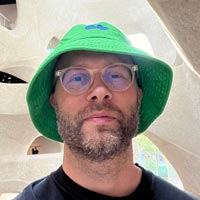Philosophical questions
 By Robin Dowling · a year ago
By Robin Dowling · a year ago
What's interesting about simulating evolution is it forces you to think about the philosophical questions that come with our interpretation of the world around us.
- How did the world come to be?
- How did everything start?
- What was the initial seed of life, the universe and everything?
- Was intelligent design applied somewhere to kickstart the process?
- Are the changes in evolution happening at random?
- Is there such a thing as randomness?
- Is the universe deterministic, building on the inevitable chain of events based on an initial seed? Who chose the seed?
Honestly, for thoughts on this, I recommend Stephen Wolfram's research into cellular automata.
As for the evolution simulation, it takes the stand of starting at a genesis, with a seeded randomness ensuring a deterministic evolution based on the initial seed. This provides a fully ranom evolution each time, one that can be regenerated if provided the same initial seed.
In the real world, scientists are still uncertain if we live in a deterministic universe where there is no actual randomness, only perceived complexity, or if there is an inherent radnomness. Either way, humans would never know the difference in their day to day life. But it would have immense implications for things like free will.
Organisms in the evolution simulation have free will, but this free will is based on a deterministic randomness.